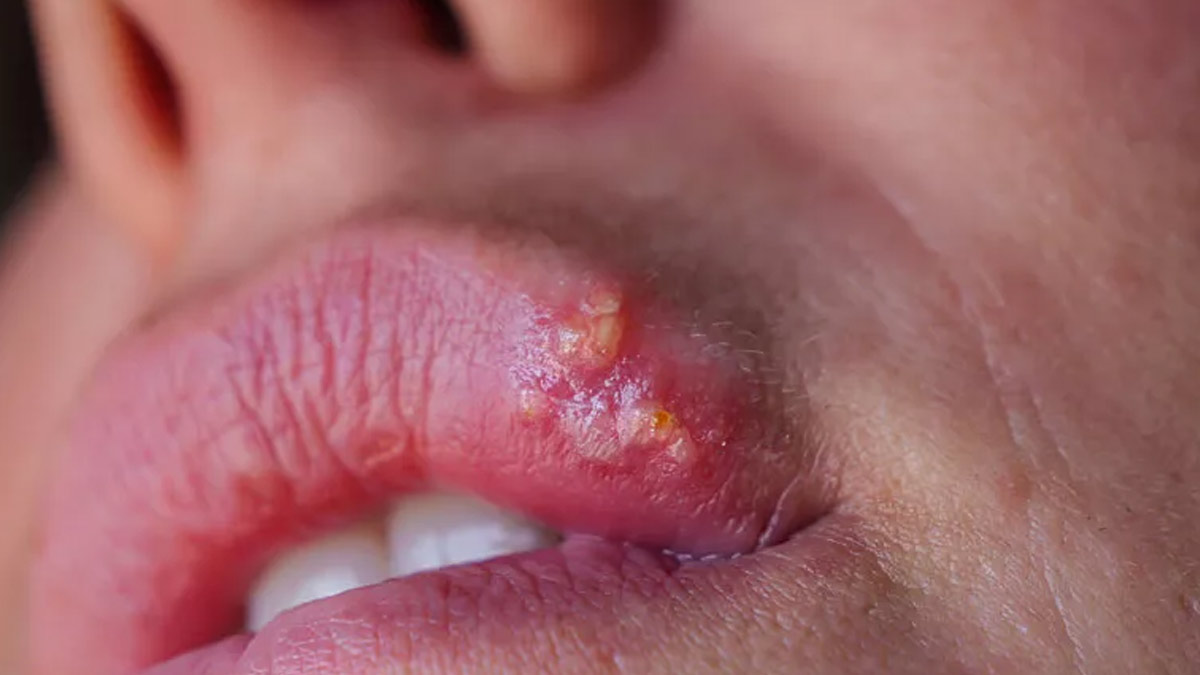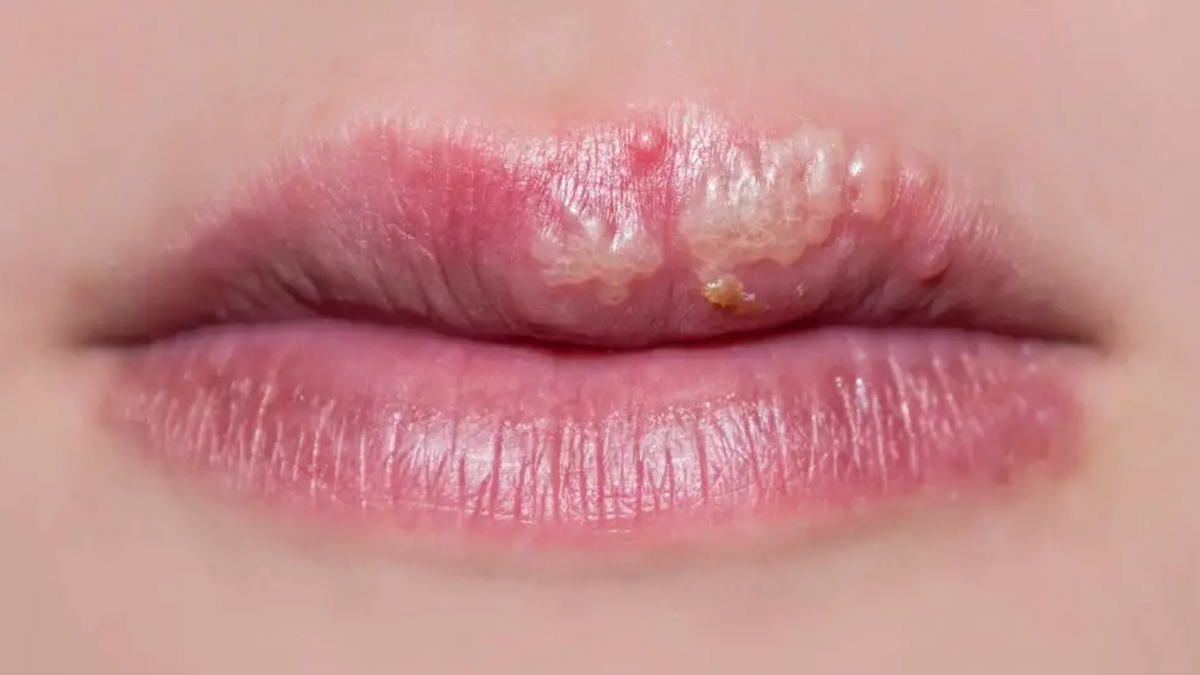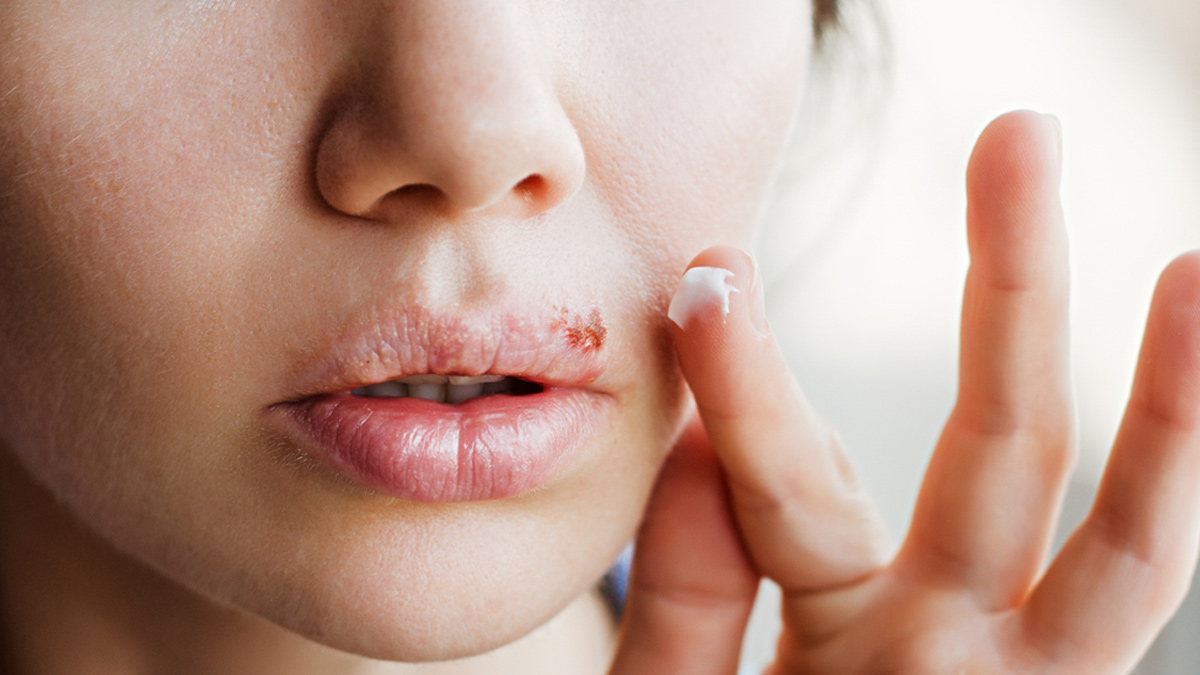
Cold sores, also known as fever blisters, are a common and often painful condition that many people experience at some point in their lives. These small, fluid-filled blisters usually appear on or around the lips but can also occur in other areas of the face. Understanding what causes cold sores and how to manage them can help alleviate discomfort and prevent future outbreaks. To explore the causes of cold sores and tips to prevent them, the Onlymyhealth team spoke to Dr Nihal Yadav, BDS (PGI Rohtak), Amayra Dental Clinic, Kaushik Enclave, Burari, Delhi.
Table of Content:-
What is a Cold Sore?
As per the National Health Service, a cold sore is a small, painful blister that appears on the skin, usually around the lips, nose, or mouth. These blisters are filled with fluid and can burst, leaving a crust that heals over time. Cold sores are highly contagious and can spread through close personal contact, such as kissing or sharing utensils.

Dr Yadav shared that these symptoms can help identify cold sores:
- A burning sensation and a wound like structure around lips, mouth, nose, and other areas
- Cold sores can be accompanied by swollen lymph nodes, nausea, pain, fever, and headache
- Pain while swallowing something
What Causes Cold Sores?
“The primary cause of cold sores are bad habits and poor oral hygiene. They are not caused by genetics or blood-related issues and are purely infection based,” said Dr Yadav.
He shared that cold sores are caused by the Herpes Simplex Virus (HSV). There are two types of HSV: HSV-1 and HSV-2. While both types can cause cold sores, HSV-1 is the most common culprit.
Herpes Simplex Virus-1
HSV-1 is primarily responsible for cold sores around the mouth and face. It is typically contracted during childhood through non-sexual contact.
The virus is spread through direct contact with infected skin or bodily fluids. This can happen through:
- Kissing
- Sharing personal items like lip balm or razors
- Touching a cold sore
Herpes Simplex Virus-2
HSV-2 usually causes genital herpes but can occasionally lead to cold sores around the mouth through oral-genital contact. HSV-2 is primarily spread through sexual contact.
Also Read: Useful Home Remedies To Get Rid Of Fever Blisters Or Cold Sores

Triggers of Cold Sore Outbreaks
Once a person is infected with HSV, the virus remains in the body and can become reactivated, leading to cold sore outbreaks. Several factors can trigger these outbreaks:
- Stress: Emotional or physical stress can weaken the immune system, making it easier for the virus to reactivate.
- Illness: Colds, flu, or other infections can trigger an outbreak as the body’s immune system is compromised.
- Sun Exposure: Prolonged exposure to sunlight can trigger cold sores in some people.
- Hormonal Changes: Hormonal fluctuations, such as those occurring during menstruation, can trigger outbreaks.
- Injury to the Skin: Trauma or injury to the lips or face, such as from dental work or cosmetic procedures, can prompt a cold sore to appear.
Preventing Cold Sore Outbreaks
While it’s not always possible to prevent cold sore outbreaks, certain strategies can help reduce their frequency:
- Avoid Triggers: Identify and avoid personal triggers, such as stress or excessive sun exposure.
- Use Sunscreen: Apply lip balm with sunscreen to protect your lips from sun exposure.
- Practice Good Hygiene: Wash your hands frequently and avoid touching your face, especially if you have an active cold sore.
- Avoid Sharing Personal Items: Don’t share items like lip balm, utensils, or towels with others.
Also Read: 5 Disturbing Facts about Cold Sores Women Should Know
Cold sores are a common and often uncomfortable condition caused by the herpes simplex virus. Understanding the causes and triggers of cold sores can help you manage and prevent outbreaks effectively. By using appropriate treatments and taking preventive measures, you can reduce the impact of cold sores on your life. Dr Yadav concluded that if you experience frequent or severe outbreaks, consult a healthcare professional for personalised advice and treatment options.
Also watch this video
How we keep this article up to date:
We work with experts and keep a close eye on the latest in health and wellness. Whenever there is a new research or helpful information, we update our articles with accurate and useful advice.
Current Version